Leading the Acting Out of Helicopter Stories- Asks
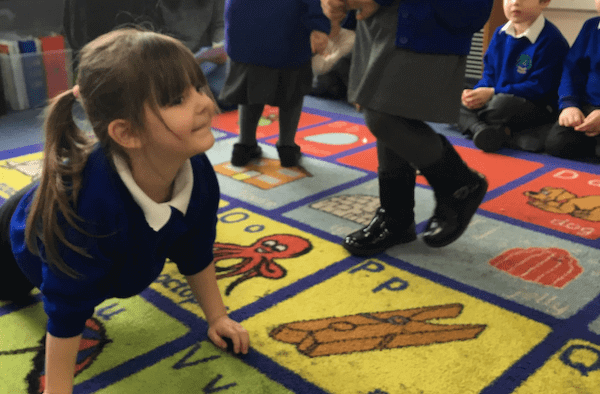
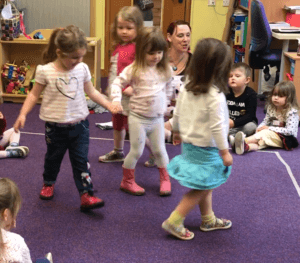
Yesterday I visited a nursery where the Helicopter Stories approach had not been working. The moment I got the email about the setting, I knew I had to visit. The idea that Helicopter Stories might not work for a group of children was too difficult for me to grasp.
I booked my visit for the first free date available, and masking tape in hand I headed towards the classroom. The teacher was enthusiastic and the school was on board. They’d read my book, Princesses, Dragons and Helicopter Stories, attended MakeBelieve Arts training, and they’d been trying Helicopter Stories since September, but somehow it wasn’t happening. The children were too quiet. They weren’t moving around the stage, and their stories were just lists.
The teacher and I chatted anxiously while we waited for the children to arrive, me nervous that maybe I’d finally met my match in the three and four year olds I was about to meet, and the teacher worried that I’d find something wrong in the way she ran her classroom. Thankfully, neither were true.
The children gathered around the taped out stage and I started the session. I decided to do it like it was their first experience of Helicopter Stories and I began with an introduction.
“There were five spiders. One, two, three, four, five. Can you come onto the stage, and can I see you pretending to be spiders crawling around your web?”

Immediately, we were away. Five children crawled onto the stage and slowly, hesitantly began to act. At each stage of the story they grew more confident, demonstrating with both their faces and their actions a clear understanding and enjoyment. Each child showed a desire to move and to act in the stories with their friends. My heart lifted. The teacher was surprised. The children were amazing. And I knew instantly what had gone wrong.
When I run a Helicopter Stories session, I never demonstrate the actions with my hands, a fact that I often talk about. The teacher had taken this on board, and was careful not to show the children how they should act each character. But something was missing.
There is something I do, that I know helps the children to feel safe on the stage, supporting them to take risks in the actions they portray. Yesterday, I realised that I need to highlight the importance of this more, when I next run training.
Asking:
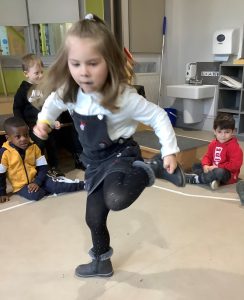
I ask a lot during the acting out. When each new character arrives on the stage, I ask for an action. I always ask how the character moves, or to see an emotion, (if one is included in the story). I ask to hear the sound of the wind or to see how a group of children will pretend to be a house. I ask, and ask, and ask, and it seems to work.
- Can I see how the Princess walks around the stage?
- Can you show me how the dragons flies?
- Can I see the dog crawling?
- Can you show me how the girl eats the candy floss?
- Can I see the spiders looking scared?
- Can I hear the wind blowing?
The film below is from a Reception classroom that I work with regularly. Even though they are highly skilled, I am still asking them to show me various aspects of the acting out.
By asking, we give children confidence to move, and to act in the way the story requires, suggesting what they can do to bring it to life. They may ignore what we say. That is fine. But I believe the asking supports them.
Asking opens up the stage for the children, inviting them to demonstrate how they would walk to the park, or fly like a dragon. I also ask children to speak the words of a character, or to PRETEND to fight. Pretend is the currency of children, and they know when they hear it, that this is not real.
For me, asking offers reassurance from the side of the stage, pushing the action further as the children crawl, climb, and stomp, in the stories of their friends.
Yesterday I truly saw the benefits of this, through a group of three and four year olds, who are now ready to fly.
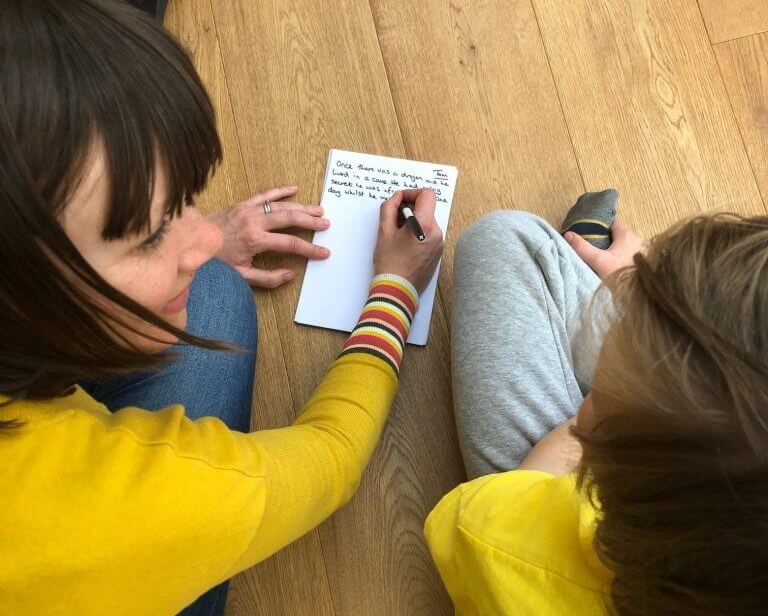
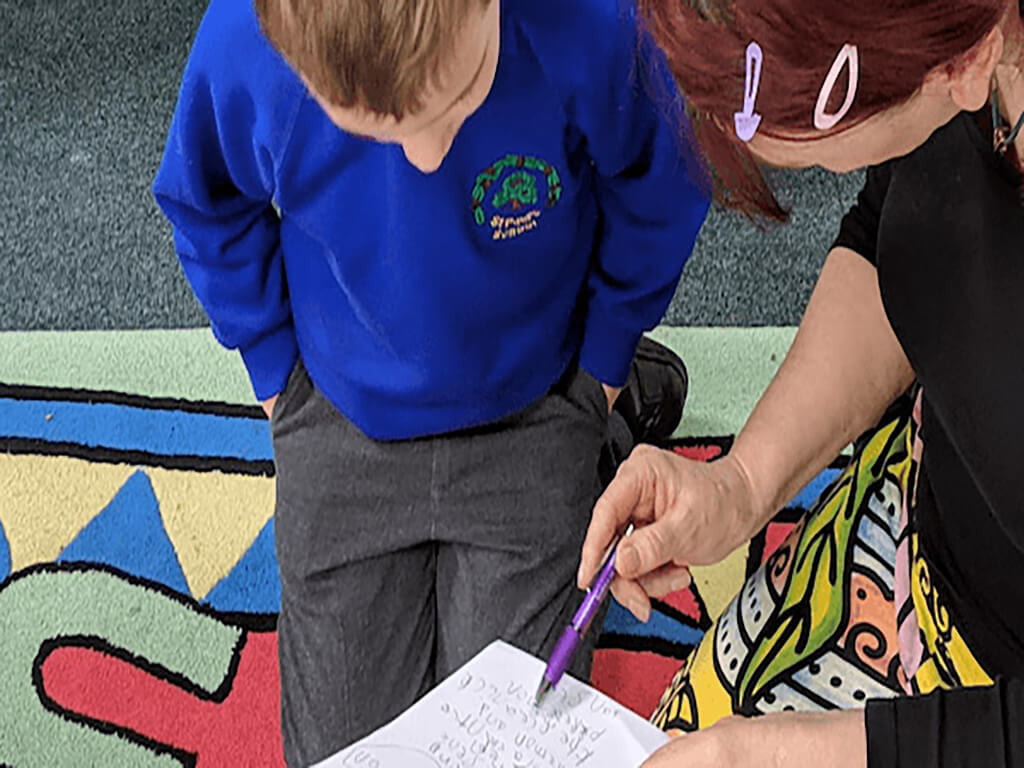
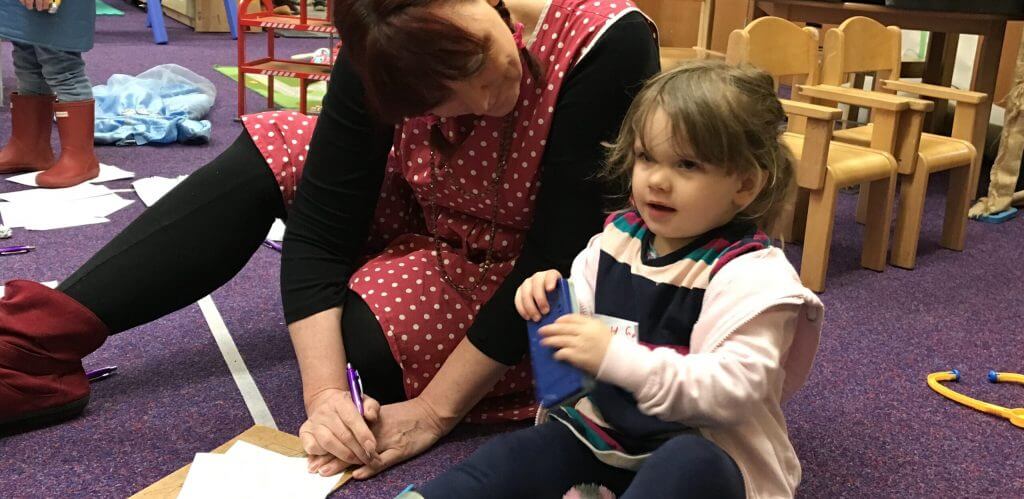
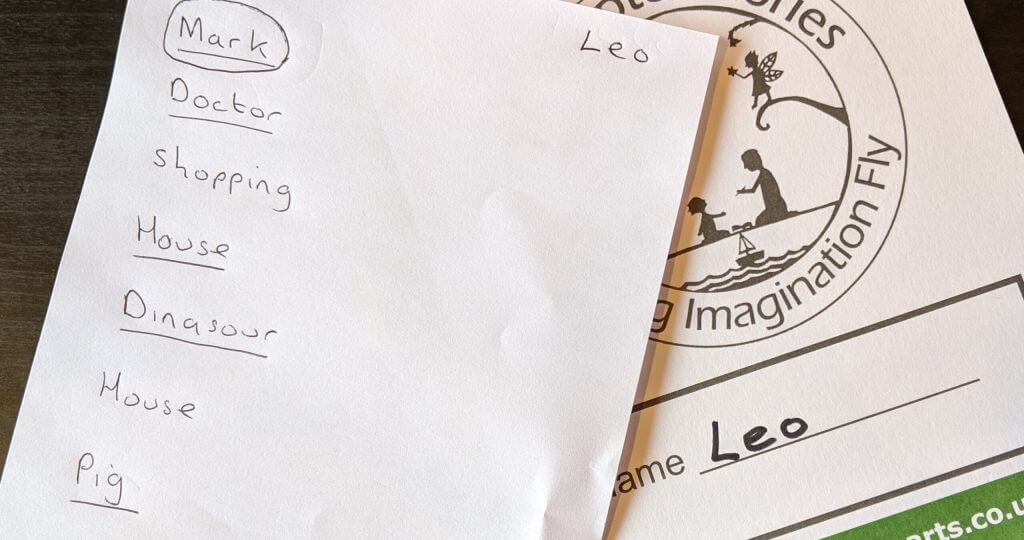
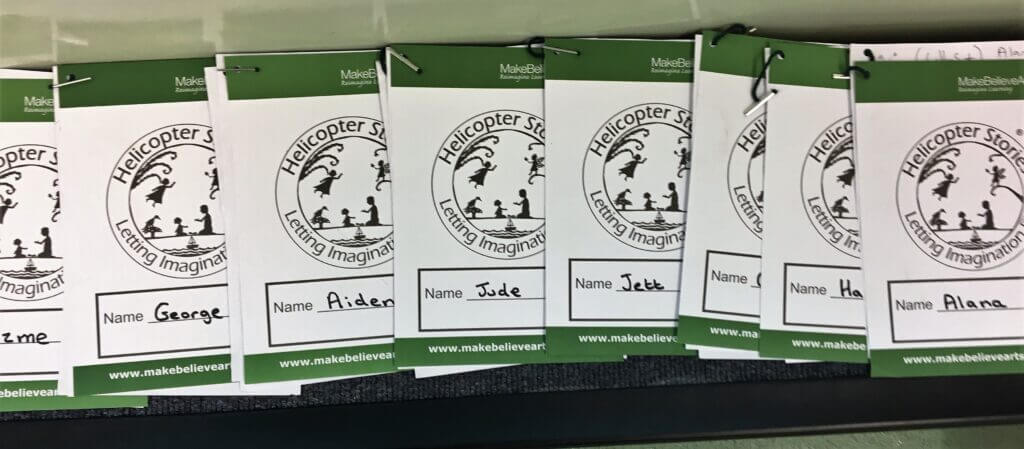
Hello, this has really made me think about my asks. I can definitely improve my use of verbs. I know I ask children to show me how something might move, but I don’t say around the stage. I’m looking forward to trying these things out when I can.
I am so pleased that it has helped. Let us know how you get on when you are able to try it out. Goodluckx